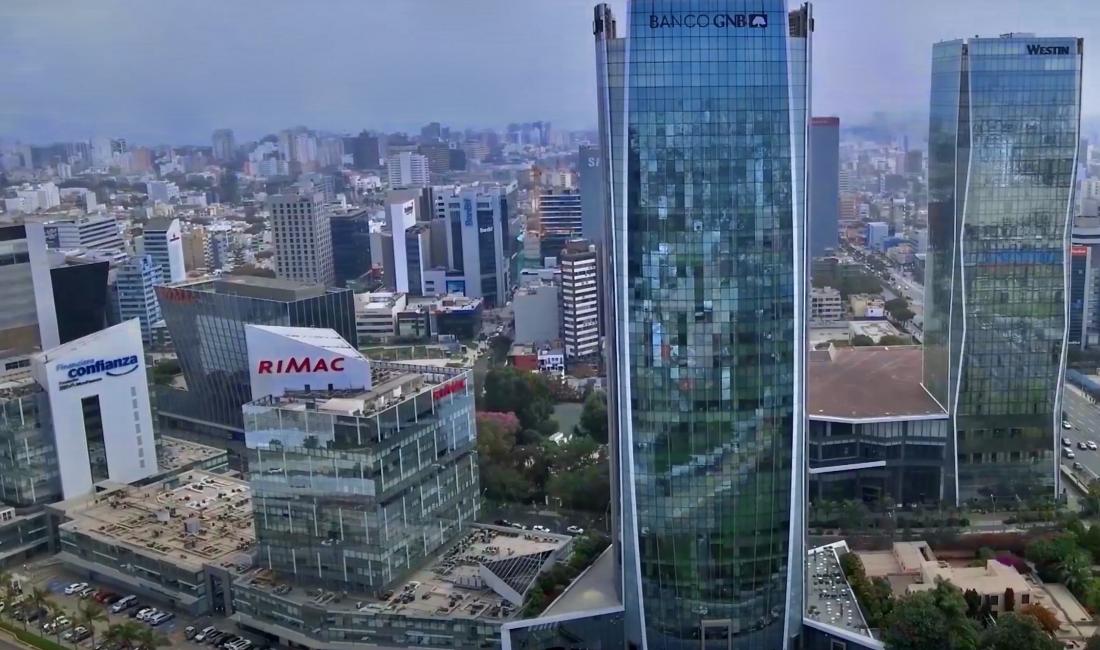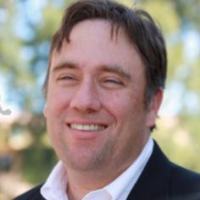Prospera island, Britain's insolvent local democracy, Sarajevo-Barcelona, Citizen Assembly heresies, a Lima neighborhood and a new Local Lab.
Photo credit: Torre Begonias and surrounding towers in San Isidro, Lima, Peru, via Wikimedia. CC BY 3.0
JUNK CEASE FIRE STATEMENTS AND ACTUALLY HELP CITIES UNDER ATTACK
Cities around the world are bitterly divided as they debate whether to issue statements calling for a cease fire in Gaza.
It would be more useful for cities to pursue solidarity—by assisting people and municipalities facing war with actual humanitarian aid and assistance in rebuilding.
That’s the point of my latest Democracy Column. It argues that as 21st century cities come under pressure from violent conflict, disease, and environmental disaster, they need to help each other directly.
The best example of that is how the city of Barcelona, in 1992, helped the city of Sarajevo, 1000 miles east in Bosnia, as it was besieged by Serb forces in the Balkan war. Barcelona named Sarajevo the 11th District of Barcelona, and then gave it aid as if it were a Barcelona neighborhood under attack.
The wartime aid was followed by major investments in rebuilding a Sarajevo neighborhood, and ultimately a partnership between the two cities that continues today.
BRITAIN’S BANKRUPT CITIES
The real story behind the British crisis, in advance of the July 4 elections, is the struggle of smaller cities and regions beyond London to make their own decisions and seize the future.
That struggle reflects the weakness of towns, cities and other local governments, itself a product of post-war nationalization of power and services across the United Kingdom. In a Democracy Column, I argue for returning power—especially fiscal power to British cities, in order to unleash the local economic development and create the great cities that make a country great.
OIL AND HAZE
Our partner Asia Democracy Chronicles has been doing groundbreaking journalism on the connections between local democracy, economy, and pollution. Among this work is a portrait of the response to haze in a northern Thai city, and a two-part series on the impact of the rise of palm oil on town and region in Indonesia.
NEW URBAN VISIONS
NOEMA, the brilliant magazine of the Berggruen Institute, where I’m a democracy fellow this year, has a must-read storiy on futuristic visions of urban life and local governance. It takes you from Thailand to an island off Honduras to describe attempts by Silicon Valley types to create new kinds of human settlements.
WORTH WATCHING
New_ Public, which describes itself as “searchers, engineers, designers, and community leaders working together to explore Creating digital public spaces where people can thrive and connect.” New_ Public and its Local Lab are partnering with public media on new models for digital spaces for local communities.
A Lima neighborhood. It’s worth watching the Lima neighborhood of San Isidro, location of a new edition of a program called “Audiences Vecinales,” which uses hearings, a public assembly, and follow-up to make changes at the community level.
The program is organized by a newspaper, El Comercio, under the auspices of Enel Peru, and with the technical support of the world-leading election and democracy assistance organization, Stockholm-headquartered International IDEA.
An opening gathering, described in El Comercio, examined detailed questions and got commitments from Mayor Nancy Vizurraga to act on several items. The follow-up comes next.
READING
• “The Interview So Dangerous It Had to Be Banned.” Citizens assemblies have become such popular tools for deliberative democracy that it can feel like heresy, especially in European democracy circles, to criticize the model. I’m especially grateful for Ireland-based to Roslyn Fuller, of the Solonian Democracy Institute, for challenging the assemblies and the people and institutions backing them. Making democracy better requires constant challenges and questioning. Here, Ros shares her thoughtful and critical answers to questions that one assembly-backing German NGO declined to publish.
• This piece details New York City’s first city-wide participatory budgeting experience, a process which produced greater trust in participants. And Nick Vlahos writes expertly on how to combine two popular deliberative tools, participatory budgeting and citizens assemblies.
QUOTE FOR THE ROAD:
"Did you, too, O friend, suppose democracy was only for elections, for politics, and for a party name? I say democracy is only of use there that it may pass on and come to its flower and fruit in manners, in the highest forms of interaction between [people], and their beliefs – in religion, literature, colleges and schools – democracy in all public and private life” —Walt Whitman
LINKS TO LOCAL DEMOCRACY RESOURCES AND PARTNERS
Democracy International and democracy.community
Federation for Innovation in Demcoracy-Europe and FIDE North America
United Cities and Local Governments
International Observatory of Participatory Democracy
ASU Participatory Governance Initiative
Taiwan Foundation for Democracy
National Civic League’s Center for Democracy Innovation
Journal of Deliberative Democracy
Local Government Information Unit
SUBSCRIBE TO THIS NEWSLETTER
By emailing the author at joe@democracylocal.com, or signing up here.




